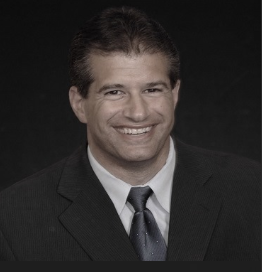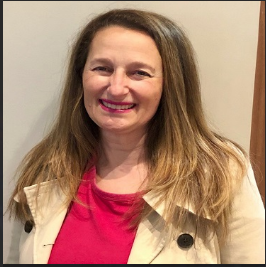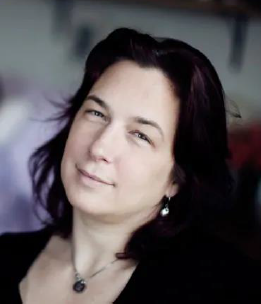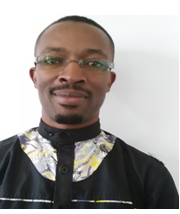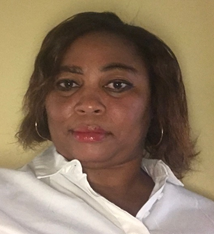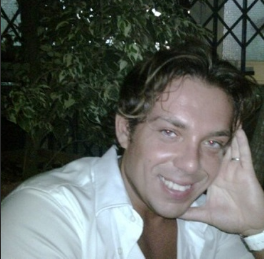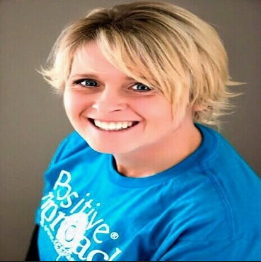Scientific Program
Keynote Session:
Title: Spring Break: A True Story of Hope and Determination
Biography:
Abstract:
Title: What do we know about Lewy body dementias?
Biography:
Abstract:
Title: Carers a Global Humanitarian crisis, my mission ensure carers are respected, supported and protected.
Biography:
Deanna was a full time carer for her mother who had dementia. Diagnosed January 2013, they had no debt and Deanna single-handedly looked after her for 6 years at home. Deanna has been through hell by unjust government legislation and policies in Australia. When her mother was dying, she could not access any assistance as Centrelink had lost her financial paperwork 4 times, drowning in debt including $72k on credit cards and a huge mortgage thanks to mandatory council fire orders. 2nd July 2018 NSW Chief Tax Commissioner threatened to default her mortgage (which means she would lose everything) unless she continued to pay NSW Revenue unjust land tax of $12,000. Deanna is a fighter and won’t stop until justice for carers is deservedly served.
Abstract:
Carers have 2 choices either sell or sacrifice everything to look after your loved one at home. It is absolute hell on earth being a full time carer for a loved one with dementia at home without any assistance. Zero tax concessions = huge unjust financial worries, sleepless nights and living on my overdraft since 2015. Dementia sucks the life out of you, being endlessly patient, showering and dealing with double incontinence, makes us all feel like the walking dead from sheer exhaustion 7 days a week. Governments cannot destroy our health, financial security and expect us to pay for everything. With no help, nor tax concessions when we have given up our careers, spent our super and when we are close to 60 and cannot return to our former careers. If this is not addressed in a holistic way, governments are leaving a gigantic legacy of the biggest generation the baby boomers forced onto welfare which all children and grandchildren will have to support for the next 30 years. I created a carers cheat sheet with links to services and strategies to protect all our futures. Including taxation, respite care, care expenses, superannuation, national carers card, carers support services for children who are carers and legal protection
Title: Dignity, Self Determination and the right to support with decision making when you have dementia
Biography:
Dementia Carer, Deakin University, Australia
Abstract:
While this may be convenient for medical legal professionals and even family members, any potential for hope, utility or self determination for the individual is eliminated.
Research has shown that when a person has appropriate support in the decision making process, that decisions, big, small, lifestyle, financial as well as those relating to daily activities can be continued well into the progression of the disease. Resources are available to educate legal, medical and care professionals as well as families and caregivers on how to do this well, however the stigma persists at the highest level that when dementia is even suspected, that capacity has to be demonstrated to make even the simplest choices. This is a very direct violation of the fundamental human right of self determination, yet as a society we have not taken any meaningful steps to address the gaps in the community understanding of what capacity means from day to day in the context of dementia, how we can support someone to maintain their dignity, self esteem and self determination as long as humanly possible.
I intend to speak from lived experience to how it feels to have capacity questioned at all times, in the medical and legal context, how it feels to be urged to ‘get onto the sunset cruise’ and never look back. I also intend to speak to the lived experience of having support with decision making, and the potential for enormous changes in the outcomes when a person with dementia is not only given ‘permission’ to have support in making decisions but is afforded such support as a human right and an entitlement. There is much room for improvement, and i remain optimistic that we can do much much better in the future if we work with people living with dementia instead of for or instead of us!
Oral Session 1:
- Dementia Vascular Dementia Neurodegenerative Diseases Treatment and cure Biomarkers for Dementia Dementia Nursing Alzheimers Clinical Trials and Studies Amyloid Protein in Dementia Alzheimer disease Imaging Recent Studies and Case Reports
Title: One Day at a Time: lived experience of loving and caring for my Mother from diagnosis of vascular dementia to end of life, at home in rural Newfoundland.
Biography:
Catherine holds a BA (Hons) from Carleton University, is a certified Dementia Care Practitioner, a certified Positive Approach to Care™ trainer and a certified End of Life Doula. She lives in a red house on a hill, by the ocean, with her husband Wayne and their two curious kids – Xavier and Sibéal.
Abstract:
While recovering from a stroke, Isabel was diagnosed with vascular dementia in 2009. A mere two months before, Isabel was living independently and extremely active in her community. Scared of what this would mean for her family, she spoke openly and courageously about her diagnosis and what was happening in her body. She lived each day at home with her family, surrounded by laughter, love and her growing grandchildren
One Day at a Time is the story of love. It’s the story of the Kelly family and their journey in supporting their Mother, Isabel, from diagnosis through to end of life. How they met the challenges of geography, energy, ignorance and how, together, they created a beautiful space for Isabel to remain whole and connected with her family. This journey intersected with multiple health care systems – three Canadian provinces in both urban and rural centres. Catherine will share insights on isolation, stigma, community care, of infusing life in the dying process and the power of love. Unflinching, One Day at a Time is a raw account of one families lived experience
Catherine recently founded ‘Got the Dementia’, inspired by her experience as a caregiver for her mother. The mission for her business is working with people with dementia and their families to create a loving, caring, supportive, nurturing environment from diagnosis to end of life. To help families identify and create the circles of support, so people with dementia can stay at home as long as possible. Catherine’s commitment to community, nature and connectedness is grounded in her small-town Newfoundland upbringing, and greatly influenced by her experience with Indigenous Cultures.
Title: Dementia assessment and diagnostic practices of healthcare workers in rural southwestern Uganda: a cross-sectional qualitative study
Biography:
Ronald Kamoga completed a Bachelor of Science in Nursing in 2005, Bachelor of Medicine and Surgery in 2012 and a master of science in human Anatomy in 2017, all from Mbarara University of Science and Technology. He is a fellow of Mbarara Alzheimer’s and Related Dementia’s Research Initiative (MADRI). He is a member of the Society of neuroscientists of Africa (SONA). He is an assistant lecturer and coordinator of Neuroanatomy training in the department of Anatomy, faculty of medicine, Mbarara University of Science and Technology. He has one research publication on dementia care services (2019) in a reputed journal.
Abstract:
An estimated 50 million people worldwide have Alzheimer’s disease and related dementias (ADRD), and this number is projected to increase with the growth of the aging population, with the largest growth occurring in low and middle-income countries. Diagnostic coverage for dementia is estimated to be only 5-10% in low- and middle-income countries. Timely diagnosis of ADRD could prompt early access to information, medical treatments, and support for caregivers. The aim of this study was to assess how healthcare workers in rural south western Uganda assess for and diagnose ADRD.
We used in-depth interviews to investigate the medical knowledge and clinical practices surrounding ADRD diagnoses among 42 healthcare workers employed at mid-tier health facilities in south western Uganda. Qualitative content analysis was used to identify distinct categories and themes.
Findings showed that healthcare workers without specific mental health training assessed and diagnosed dementia based on history and physical examination alone. Healthcare workers with some specialized training in mental health were more likely to use neuropsychological tests, brain imaging and other tests in diagnosis of dementia. Majority of healthcare workers regarded memory loss as part of the normal aging process with no need for treatment while other healthcare workers could recognize signs and symptoms of dementia, but ignored them. Diagnostic practices did not differ based on age, years of experience, or gender of the healthcare workers.
We found that specialized training in mental health among healthcare workers is crucial for the assessment and diagnosis of ADRD in rural south western Uganda.
Title: Challenges of diagnosing dementia among elderly patients in a rural Referral Hospital, South-Western Uganda
Biography:
Patrick Orikiriza has just completed his PhD from University of Montpellier, France. He is a junior lecturer in Microbiology and a research fellow at Mbarara University of Science and Technology. He has published more than 20 papers in reputed journals
Abstract:
Background: Dementia, is a common disease among elderly persons and is characterized by progressive decline of cognitive functioning. Uganda is one of the countries grappling with high fertility rates and 4% elderly population. Most low resource settings lack capacity to screen and diagnose dementia because of limited testing options. We evaluated the impact of Montreal Cognitive Assessment (MOCA) tool in screening dementia among elderly patients in a low resource setting.
Methods: A cross-sectional study was conducted in a Regional Referral Hospital in Uganda. We enrolled 90 elderly patients (≥60 years) admitted in medical, surgical, emergency, obstetrics and gynaecological, and psychiatry wards. All participants had standardized screening using the MOCA tool in order to establish the relevance of the checklist in the management of dementia within a low resource setting.
Results: Overall, 46/90 (51%) were females with median age of 72 years. Of these, 41/90 (46%) had no formal education while 48/90 (53%) were married. Most patients; 25/90 (28%) were admitted with respiratory problems while 41/90 (46%) had a cognitive disorder; 18/90(20%) mild, 11/90 (12%) moderate, 12/90 (13%) severe, that was not screened at admission. Moreover, 12/90 (13%) had a history of a family member presenting with memory loss. The MOCA checklist was highly subjective with scores more likely to increase with level of education and age.
We affirm that in its current form, the MOCA checklist is not suitable to screen dementia in low resource settings where majority of presumptive elderly patients lack basic education. We propose a modified checklist capturing more relevant aspects in such populations.
Title: Knowledge of dementia among migrant care workers in Australian residential aged care facilities: results from a national survey
Biography:
Dr Bola Adebayo graduated as a Dentist from the University of Ibadan in Nigeria and completed a Master’s degree in Public Health from Edith Cowan University in Western Australia (WA). She is currently a PhD candidate at the School of Nursing, Midwifery and Paramedicine Curtin University WA. Her research interests are migrants’ health, dementia, oral health and aged care.
Abstract:
Dementia is one of the main reasons for admission into residential aged care facilities (RACFs), with over 50% of residents having a diagnosis of dementia [1]. The rising prevalence of dementia in RACFs highlight the need to have sufficiently skilled care workforce that is motivated to provide safe and high quality care for people with dementia [2]. Migrant care workers have been recruited in high-income countries including Australia to address staff shortages and to meet the increased care demands in the aged care sector [3]. This study examined the level of knowledge of dementia among RACF migrant care workers and investigated the effects of sociodemographic characteristics in predicting the levels of their knowledge of dementia.
A national survey was conducted using the Dementia Knowledge Assessment Tool Version 2 and sociodemographic questions (DKAT2). Data was analysed using descriptive analyses, ANOVA tests and multiple linear regression tests. Although the respondents had good knowledge of dementia, there were deficits related to aetiology, progression of dementia, physical symptoms, support and care. Over half (57.8%) of the respondents reported that confusion in an older person is always due to dementia. The majority (62.4%) were unable to recognise pain in residents with advanced dementia. There were no significance differences between the select respondents’ sociodemographic characteristics and the DKAT 2 scores. Regression analysis indicated no collective significant effect between sociodemographic characteristics and knowledge of dementia. This study results highlight the need to address knowledge deficits in dementia among RACF migrant care workers.

